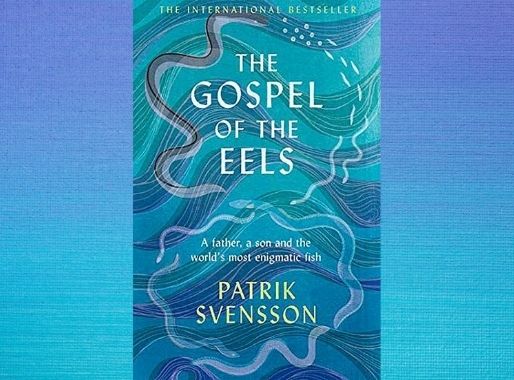The Gospel of the Eels: a father, a son and the world’s most enigmatic fish
Patrik Svensson, 2020, Translated by Agnes Broomé
Pan Macmillan, $34.99
Author Patrik Svensson describes The Gospel of the Eels as a “strange and nerdy book”. He isn’t wrong; his book (subtitled “A father, a son and the world’s most enigmatic fish”) is part memoir and part natural history with musings on other topics (the birth of the modern environmental movement and the meaning of miracles, for example) skillfully interwoven.
The Gospel of the Eels is Svensson’s first book and a bestseller in his native Sweden. As a child, Svensson fished for eels with his father in “a tranquil stream meandering through the greenery like a silver chain glinting in the last slanted rays of the setting sun”. (Kudos to Agnes Broomé for her elegant translation.)
This is not a syrupy father-son story. Svensson “can’t recall us ever talking about anything other than eels and how best to catch them …” Once caught, the eels are speedily dispatched by Svensson Senior, and while Svensson Junior loves fishing, and expresses no squeamishness at their demise, he cannot stomach them.
After his father’s death, Svensson, a journalist, began researching eels, which are indeed enigmatic. No one has actually seen eels breed, and they refuse to do so in captivity. Only in the early 20th century were the breeding grounds of the European eel discovered (the Sargasso Sea).
Some things I learned from this book: Aristotle was convinced that eels simply sprang from the mud; a 19-year-old Sigmund Freud spent several fruitless months dissecting hundreds of eels in a vain attempt to find their reproductive organs; eels can live for decades and thrive in both salt and freshwater at different life stages.
The eel has a major image problem. Other than the Japanese, few people still eat eel, and the reaction of most of the people I told about this book was, “Eels? Yuck.”
Perhaps, Svensson theorises, a misunderstanding of God’s directions in Leviticus contributed to the widespread distaste many felt for the eel. (“But anything in the seas or the rivers that has not fins and scales … is detestable to you.”)
The eels’ fins and scales are hard to make out, but unlike ordinary fish, which became a potent Christian symbol, the eel remained “detestable, if not to all, then to many”.
Sadly, eels are now increasingly endangered, but our lack of knowledge hampers conservation efforts. Perhaps we would also care more if they were cute, like baby seals, or majestic, like whales.
Whether or not this “strange and nerdy book” converts you to an eel aficionado, the human story within it is likely to touch your heart.
_______________
books@ssh.com.au





